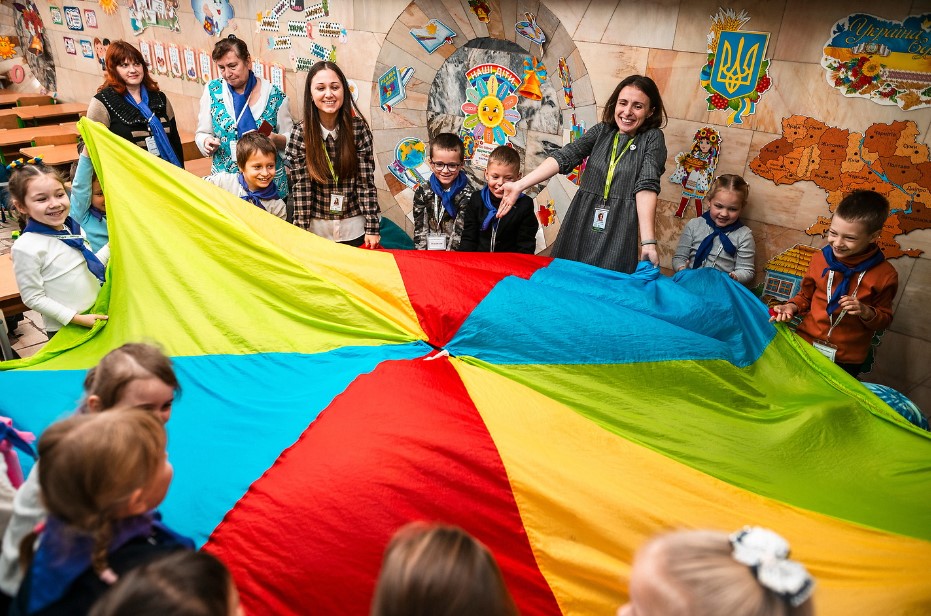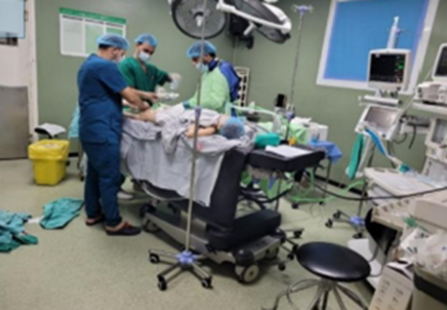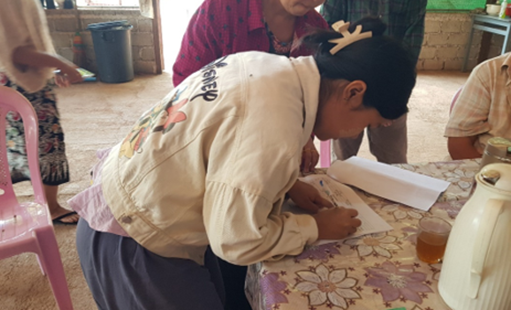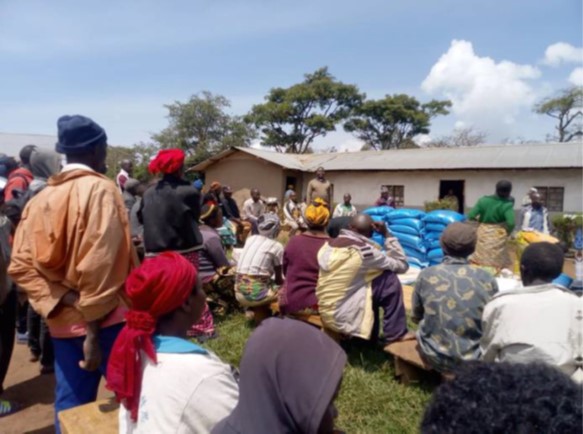Remembering World Humanitarian Day 19 August
120 million People Currently Displaced Worldwide
World Humanitarian Day is on 19 August, but it probably won’t be celebrated by the record number of people who are displaced internally and internationally. When we think of the number of people displaced around the globe in 2024 – 120 million – that is 4.6 times the entire population of Australia!
Much of the rise in the past year is due to conflicts in Sudan, the Democratic Republic of Congo (DRC), Palestine, Ethiopia, Myanmar and Ukraine.[1] And for most of these conflicts (the DRC, Palestine, Myanmar and Ukraine), ABM AID has raised funds from our generous donors to provide food or other support for the displaced people.
AID’s support for displaced Ukrainians has been implemented through an ecumenical network, ACT Alliance (Action by Churches Together). This response has included cash assistance, shelter, water and sanitation, general health services, psycho-social support and food security. The support has reached over 400,000 Ukrainians: both those who fled to Poland, Slovakia, Hungary, Romania and Moldova, as well as those displaced within Ukraine. You can read more about how your support has assisted displaced Ukrainians in this new report from ACT Alliance.
AID’s response to the conflict in Palestine is implemented through the Diocese of Jerusalem. The response has consisted mainly of medical support (in Gaza and the West Bank) and tuition subsidies for vulnerable families affected by the economic downturn in the West Bank. Our support for Gaza will increase as access to Gaza becomes safer.
AID has provided smaller-scale assistance, in the form of cash and food relief, to those affected by conflicts in Myanmar and the DRC.
AID has also recently provided assistance to people affected by natural disasters, notably the 2023 earthquake in Syria-Turkey, Cyclone Mocha in Myanmar and several cyclones in Vanuatu.
On World Humanitarian Day, we should acknowledge the resilience shown by those affected by conflict and natural disasters and the solidarity that people, including Anglicans, show to affected communities. We should also acknowledge that most of those who are displaced continue to do things tough, and the assistance is never enough. You can learn more about this by reading two stories of ongoing displacement in the current Myanmar conflict here: www.abmission.org/news/emergency-updates/the-human-face-of-displacement-in-myanmar
AID sends a heartfelt “thank you” to all our supporters who have donated to our humanitarian responses and joined their prayers to those of displaced people everywhere over the past year. We also thank our partners who tirelessly commit themselves to supporting those affected by humanitarian disasters.
[1] https://www.nrc.no/global-figures/

Psychologists Olha Zinovieva and Alina Symonenko conduct a session at the Kharkiv Metro School for Ukrainian refugees, focusing on emotional well-being and trauma coping strategies for the young learners. The Russian invasion of Ukraine began in February 2022. © Antti Yrjönen/Finn Church Aid. Used with permission.

Al Ahli staff work under heavily compromised conditions during the Israel-Gaza war which began in October 2023. © Diocese of Jerusalem. Used with permission.

Woman signs for cash relief from the Church of the Province of Myanmar. © CPM. Used with permission.
